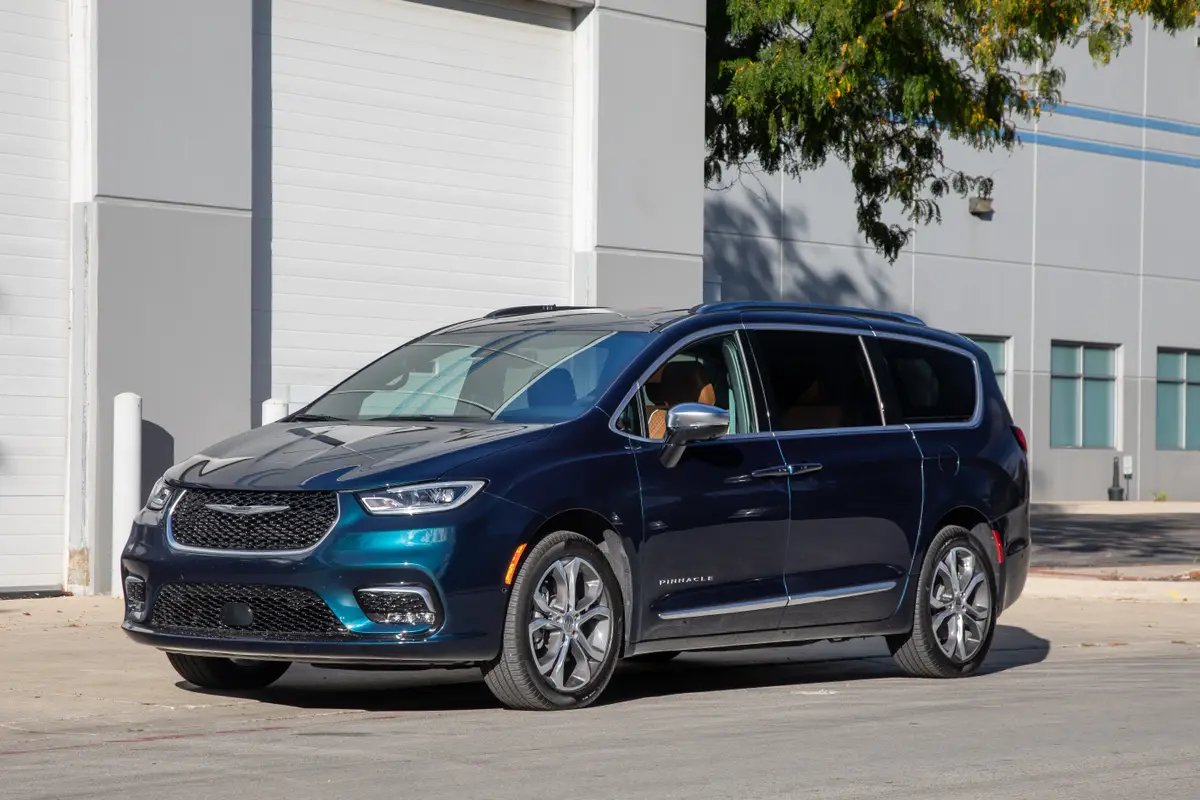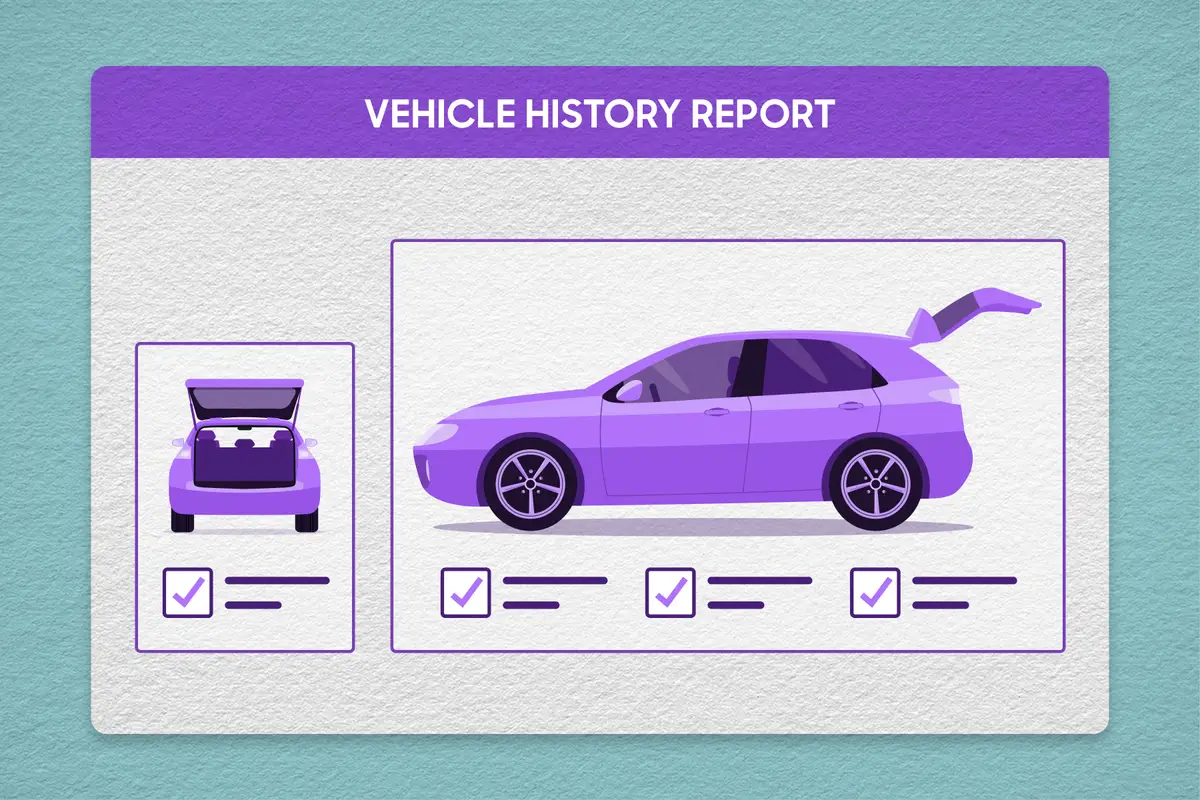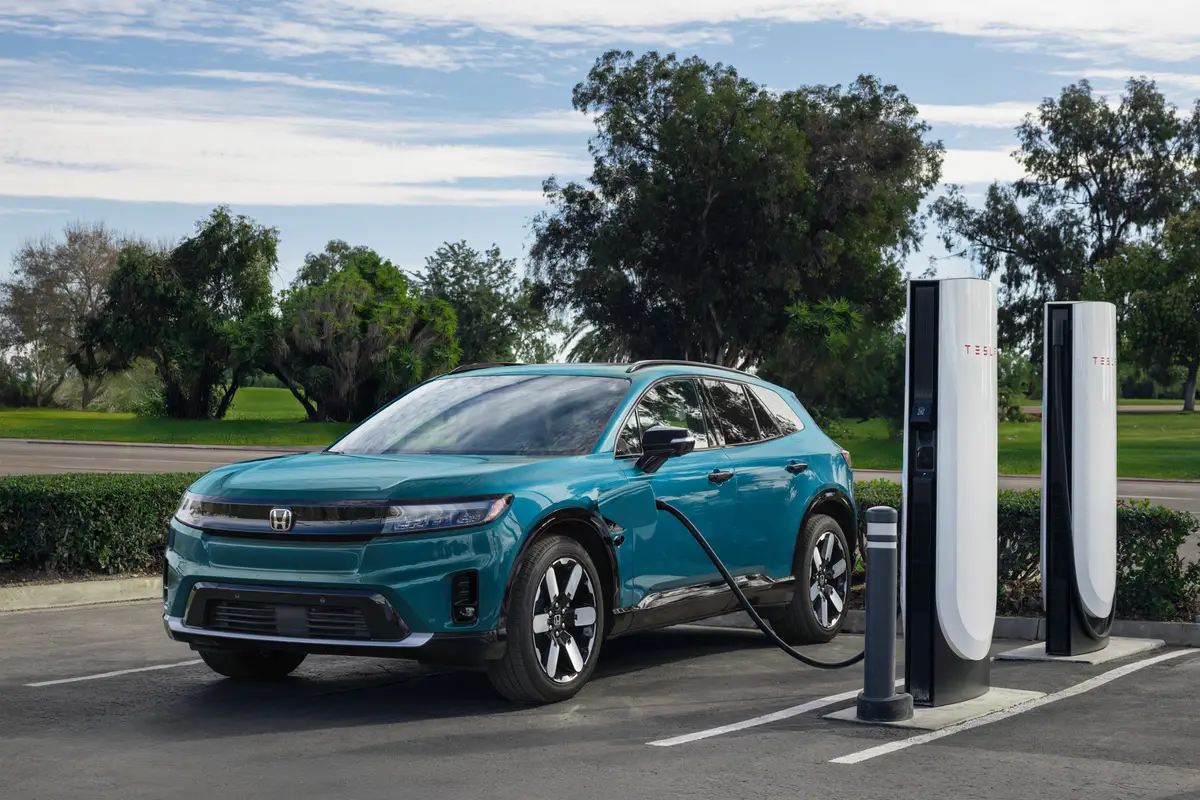Buying a Used Car? Here’s What You Need to Know

Whether you’re buying your first car from a family friend or scouring Facebook Marketplace for a new addition to your automotive collection, buying a used car can be a stressful process. Here’s some advice from the Cars.com Editorial team on how to get the best deal on a used car.
Related: What’s the Best Time of Year to Buy a Car?
Set a Budget
Determining what you can afford is the first step toward buying a used car. The average list price of a used car hovers around $28,859, making it still an expensive investment.
Additionally, maintenance costs are key to keep in mind when setting your budget. The estimated annual repair costs for some luxury brands can amount to roughly double that of a Toyota or Honda.
Paying for a Used Car
The two main ways to pay for a car are to pay in full or finance. When paying in full, make sure to save money for additional costs, such as registration fees and insurance. Financing may be tempting due to low monthly payments, but it will increase the total amount you pay for the car due to the amount of interest.
Paying in full
Paying in full can keep your financial future free from monthly interest payments and can help you save on your bottom line. When paying in full, the best methods are likely arranging a wire transfer with your bank or a cashier’s check. A downside, however, is that your choice of vehicle may be limited if you have a tight budget.
Financing
Financing may widen the range of vehicles you can purchase, since the immediate price is not as hard of a limiting factor. Evaluating your budget and financing options ahead of time can give you negotiating power when the time comes to talk numbers, and shopping around to compare offers can help you get the best deal possible. Banks and credit unions can help you determine financing options.
It’s also important to get preapproved for a car loan if you need one. Getting preapproved for a loan, which you can do even when buying from a private seller, will give you more confidence when comparing offers and negotiating with the seller or dealership. Keep in mind, though, that most banks have restrictions on a used vehicle’s age and mileage for a loan, whereas some credit unions may be a little more lenient.
Related Articles:
- Can You Afford Your Car?
- Inside the Finance and Insurance Room
- Auto Loan Basics for First-Time Buyers
- What You Need to Get a Car Loan
Do Your Research
Getting a clear picture of what you are looking for in a vehicle will help with your decision. Start by reading online reviews on the vehicle’s reliability and fuel economy figures to help you narrow your choices, and check what other sellers are offering for the vehicle to determine if you are paying a fair price. Cars.com has buying guides, research and reviews for all types of cars, ranging from pickups to SUVs.
Ordering a CarFax or AutoCheck report will give a thorough vehicle history, with information on past owners, recorded maintenance, previous accidents and outstanding recalls. To learn more about any recalls the vehicle may have, the National Highway Traffic Safety Administration’s website allows users to check a vehicle’s current recalls by its vehicle identification number or year, make and model.
Don’t just research the vehicle, either; doing your homework on the dealership or private seller can be of use, too. For example, Facebook Marketplace provides seller ratings, which can help unveil red flags and provide a record of previous transactions. For dealerships, you can read reviews of the dealership online or contact your local- and state-level consumer protection agencies to learn about unresolved complaints filed about a particular dealer.
Private Seller or Dealership

Buying from a private seller or dealership comes with their own host of pros and cons. Here are some tips to help you make an informed decision on purchasing from either.
Private seller
Buying from a private seller can provide you with a more reasonable price than a dealership, and if you have a specific vehicle in mind, you may have more luck buying that exact make and model from an individual rather than a dealership.
When buying from a private seller, the responsibility of handling the documents of the transaction falls on the buyer and seller. Documentation to complete an individual vehicle sale changes by state, but the most important document is the title.
Additionally, safety is crucial when meeting with a private seller. Be sure to meet the seller with a friend and/or in a public place during the day, such as a grocery store parking lot, bank or police station. If you are going to test drive the vehicle, take a photo of the seller’s license and send it to a friend who’s not currently with you.
You also shouldn’t pay for the car in cash; use a money order or cashier’s check instead. Before paying for the vehicle, ensure the seller has the legal right to sell the vehicle by comparing their ID with the title. If the car has not been paid off yet, you can reach out to the seller’s lender to get the payoff amount, because after the purchase, you may be responsible for paying off their car loan, as well.
Dealership
Dealerships offer a wide range of vehicles, giving shoppers more options when looking for the right car. When completing the purchase, dealerships will handle the paperwork, and you can likely finish the transaction all in one day.
However, prices will likely be higher at dealerships than with private sellers since their goal is always to turn a profit. Dealerships may also offer optional products and services at the end of a purchase, so be sure to know what those include, whether they’ve been added to the vehicle and whether you want them.
The Federal Trade Commission requires car dealerships to display and provide consumers with a Buyers Guide disclosing important vehicle and purchasing information. The guide discusses major mechanical issues, the car’s warranty, what costs the dealer will pay under the warranty and additional advice. If the deal is done in Spanish, dealerships are required to provide a Spanish version of the guide.
Warranties
There are several types of warranties offered when buying a car from a dealership: full and limited written warranties, implied warranties and extended warranties; the vehicle may also be sold as-is. Warranties may also be described by the parts of the vehicle covered under the contract, such as a powertrain warranty or a bumper-to-bumper warranty.
When buying a car, the manufacturer’s warranty may still be in effect; if it is, ask the dealer for a copy of the car’s warranty documents and verify the information with the VIN. Car warranties are valid for a period of time or a set number of miles, whichever comes first.
Full and limited warranties
Full and limited warranties may cover some or all of a car’s components and systems. Bumper-to-bumper coverage falls under these types of warranties.
Full warranty
A full warranty might cover repair or replacement of any part of a car that was damaged regardless of use. It must also meet the federal government’s minimum standards for comprehensive warranties. By FTC guidelines, a full warranty includes five things:
- no limitation on the duration of implied warranties,
- the warranty service is provided to anyone who owns the vehicle during the warranty’s period
- the warranty service is provided at no charge
- the warranty will guarantee a replacement or full refund if the vehicle is unable to be repaired after numerous tries
- the customers do not have to perform a duty as a precondition for service, outside of notification of the requested service, unless it is demonstrated that the duty is reasonable
Limited warranty
A warranty is considered limited if any of the above conditions aren’t true. A limited warranty might cover only key vehicle components, but only under certain circumstances and uses.
Implied warranties
If a used car doesn’t come with a written warranty, there’s an implied warranty. The FTC explains that “implied warranties are unspoken and unwritten promises from the dealer to buyer.” If you have problems that aren’t covered by a written warranty, see if there’s protection from one of these implied warranties.
- Implied warranty of merchantability: This type of implied warranty means that the dealer agrees the car will run and promises its basic functions.
- Implied warranty of fitness: This type of implied warranty applies for when a consumer buys a car for a particular activity, such as hauling a trailer, based on a dealer’s advice.
Implied warranty coverage can last up to four years, but the length of coverage varies from state to state. A lawyer or a state consumer protection office can tell you more about implied warranty coverage in your state.
Extended warranties
An extended warranty is a vehicle service contract that continues past the manufacturer’s warranty period expiration date; some are offered by the automaker or affiliated company, while others are offered by independent companies.
As-is
Dealers can also sell cars as-is, meaning the dealer won’t pay for any needed repairs, and you are liable for any damage sustained after the sale. Most cars from private sellers are bought as-is.
Inspecting the Car
An inspection of a used vehicle before purchase will ensure you’re paying for a reliable vehicle and let you know of any glaring issues. While you should conduct your own visual inspection and test drive the vehicle, you should also have a professional take a look at the car; either bringing a mechanic along to inspect the vehicle or bringing the vehicle to an auto repair shop works. Be sure to ask the mechanic for a written report and an estimate of the cost of possible repairs. If the seller doesn’t allow an independent mechanical inspection, consider that a glaring red flag that they may be hiding something.
Related Articles:
Certified Pre-Owned Cars
Some dealerships may have an inventory of certified pre-owned cars. CPO cars are inspected by either a dealer or third party to meet minimum quality standards and often include some type of warranty. These are a popular choice for vehicle buyers; however, a CPO sticker can increase the cars price from 2% to 8% of the original used-car price.
Related Articles:
Too Good to Be True
These days, scams are widespread, and getting the best deal for your money is always the end goal. Don’t be afraid to walk away from a purchase at any time. Red flags from a private seller can include no buyer reviews or history, resistance to an independent inspection or test drive, as well as odd requests about electronic payment.
While a mechanical inspection and vehicle history report can inform your choice to buy, here are some common scams to be wary of.
Odometer fraud
Odometer fraud is the alteration of a vehicle’s odometer to present less miles than actually driven. NHTSA estimates over 450,000 vehicles are sold each year with false odometer readings, costing car buyers over $1 billion each year.
To see if there are any warning signs as to whether the odometer was tampered with, check and compare the mileage on the car’s title with that on the odometer, and be sure the mileage on the title isn’t obscured or hard to read. You can also examine the wear and tear on the vehicle’s pedals and tires to see if it’s appropriate for the miles displayed on the odometer. If an odometer has less than 20,000 miles, it should have the original tires.
Title washing
Title washing is when a seller (usually a private seller) removes information, such as a branded title for a salvaged or lemon car to create a “clean” title that conceals a car’s issues and inflates its value. This can occur when the seller brings a vehicle to a different state where the vehicle’s brand is not recognized, alters the title or applies for a new title with misrepresented information. A washed title can also hide if the vehicle was stolen.
Buying a used car with a washed title can leave the unknowing buyer with a vehicle with severe mechanical issues. Buyers can avoid this by comparing the provided title against an independently ordered vehicle history report, inspection or information provided by an inspection company.
Related Video:
Cars.com’s Editorial department is your source for automotive news and reviews. In line with Cars.com’s long-standing ethics policy, editors and reviewers don’t accept gifts or free trips from automakers. The Editorial department is independent of Cars.com’s advertising, sales and sponsored content departments.
Featured stories




